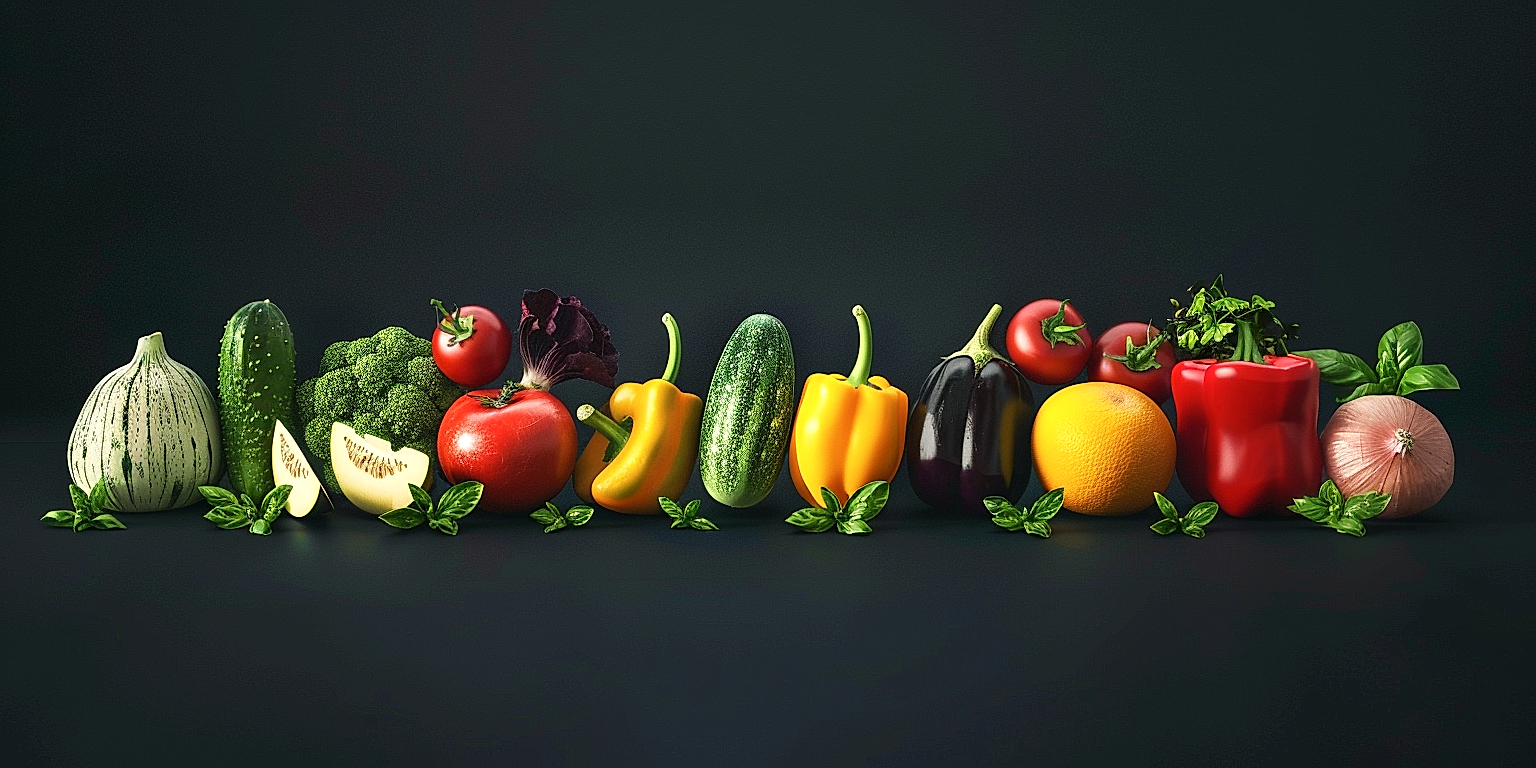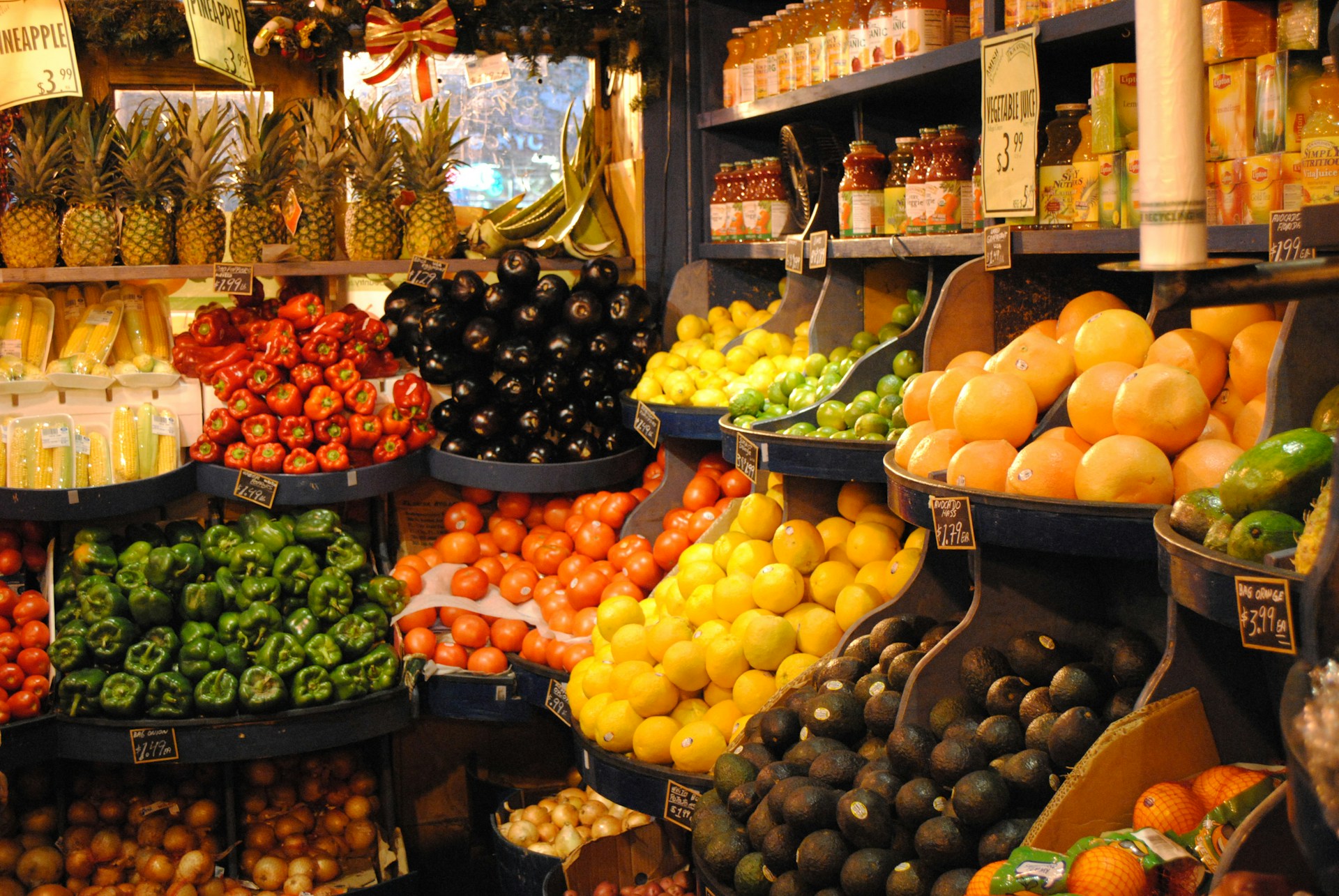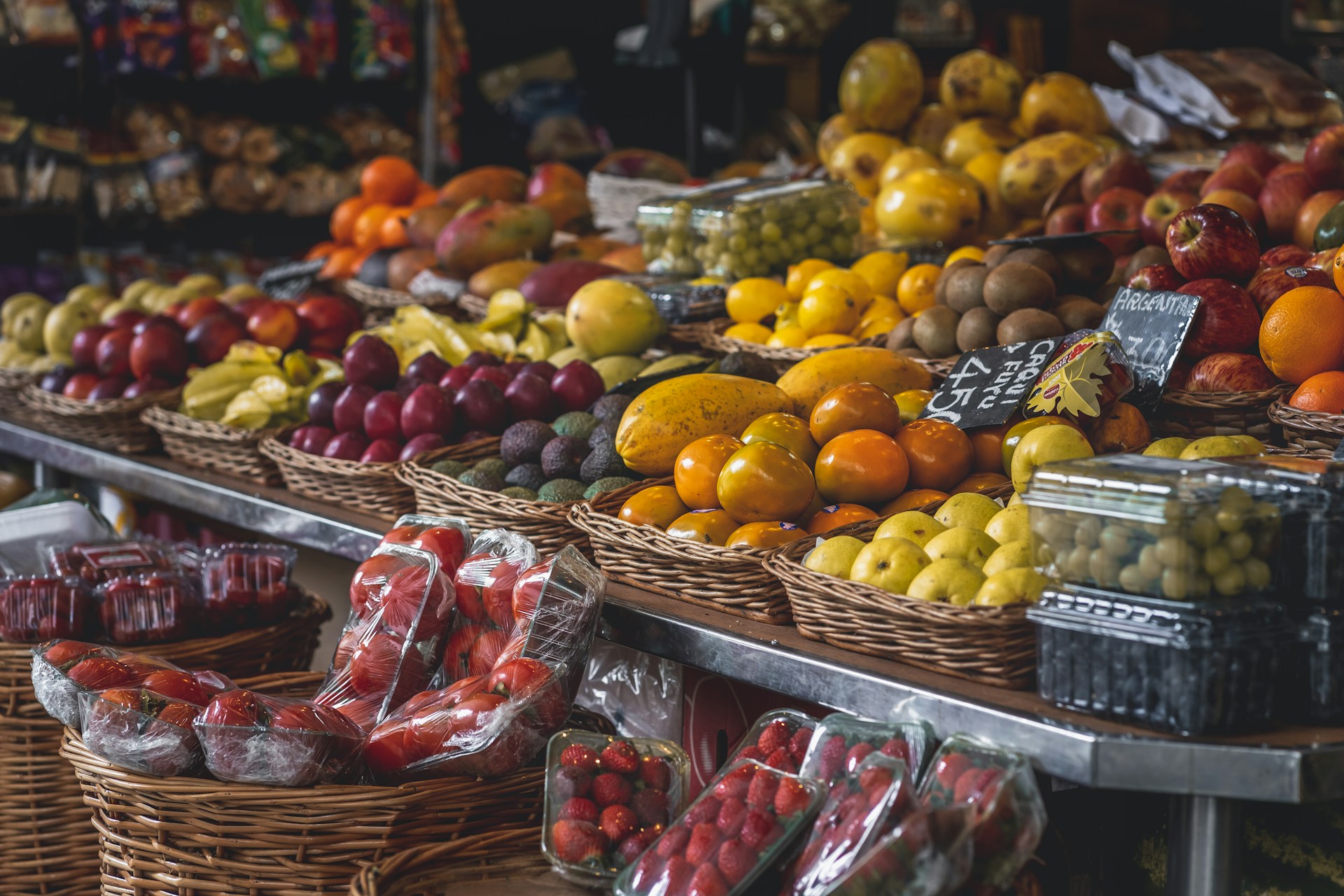With an increasing consumer emphasis on food safety and traceability, the retail landscape has transformed.
Quality certifications play an indispensable role in this new scene, impacting not just growers and distributors, but reaching far into the retail sector.
The value they offer is undeniable, adding an integral layer of trust and dependability in consumer-producer relations.
Retailers of fresh produce find such certifications not just necessary, but vital to their business operations.
This post will delve into the significance of these certifications within the retail industry.
It will provide insights into why retailers cannot afford to overlook the importance of quality certifications in today’s market.
Contents
Quality Certifications Important For Produce Retail
1. GlobalG.A.P. Certification
The GlobalG.A.P. Certification is tailored towards ensuring the globally-accepted standardisation of agriculture around the world.
Established to ensure safe agricultural practices that promote the sustainability of resources, this certification provides assurance for produce buyers regarding the quality of products they purchase.
Holders of this certification are considered to engage in responsible farming practices that encourage the health, safety, and welfare of both workers and consumers.
This is especially important in a world where many buyers are now prioritizing the sustainability and safety of the foods they consume.
The GlobalG.A.P. Certification serves as a seal of approval that indicates that the holder upholds the finest agricultural practices that consider the farm workers, the consumers, and the environment.
To be GlobalG.A.P. certified, farms must meet stringent criteria encompassing food safety and traceability, environmental sustainability, worker safety and welfare, and animal welfare where applicable.
This comprehensive audit requires the farm to keep detailed records of their farming practices to ensure that they adhere as closely as possible to the GlobalG.A.P standards.
The end result is that consumers can feel confident that their food has been produced in a manner that is both safe and respectful to the environment and those involved in its production.
Moreover, the existence of the GlobalG.A.P. certification provides a way for businesses to differentiate themselves from their competition, offering a unique selling point to attract more customers.
On the other hand, this certification helps consumers make knowledgeable purchasing decisions that align with their food safety and sustainability values.
Although, attaining the GlobalG.A.P. certification may entail additional operational costs for the farmers, these costs are often offset by the additional value that the certification adds to their produce.
Furthermore, the GlobalG.A.P. certification is recognized worldwide, which has the inherent benefit of opening up new opportunities for certified farms to market their products globally.
Bearing in mind, the certification process is an ongoing one, ensuring that farms maintain their commitment to the GlobalG.A.P. standards rather than simply complying at the time of assessment.
For the future of GlobalG.A.P certification, continuous progress is expected, as well as new benchmarks for responsibility and quality in farming, providing benefits to consumers, farmers, and the environment alike.
Taking all these into account, it’s evident that the GlobalG.A.P. certification is a vital quality assurance mechanism in today’s increasingly-conscious food market, particularly for produce retail.
2. USDA Certified Organic
The USDA Certified Organic label indicates that the produce has been grown and processed according to federal guidelines set by the United States Department of Agriculture.
These guidelines focus on soil quality, animal welfare, pest and weed control, and the use of additives.
Organic producers have to use natural substances and physical, mechanical, or biologically based farming methods to the fullest extent possible.
Producers who opt for an organic certification must maintain detailed records and be open to periodic on-site inspections.
One of the crucial elements of organic certification is the prohibition of the use of synthetic fertilizers, pesticides, and genetically engineered seeds.
The USDA Certified Organic label is a guarantee of quality for consumers that the produce they are buying follows strict regulations and has been controlled at every stage of its production.
The organic certification not only benefits the consumers who get to consume healthful produce, but also the farmers who practice sustainable and ecologically-friendly farming methods.
Many retailers consider stocking USDA certified organic products as it provides an assurance of quality to their customers and often allows them to charge a premium price.
For farmers and producers, getting a USDA Certified Organic certification can be a costly and time-consuming process, as it requires a complete overhaul of their farming methods and regular inspections to maintain the certification.
However, many consider it a worthy investment as the demand for organic produce is on the rise.
More and more consumers are willing to pay extra for the assurance that their food is free from harmful chemicals and genetically modified components.
Furthermore, they appreciate the fact that organic farming is more sustainable and better for the environment.
For these reasons, the USDA Certified Organic certification is a crucial consideration for quality-conscious retailers.
It not only provides the guarantee of a high-quality, healthful product but also adds to the credibility of the store or brand selling the produce.
The journey to obtaining and maintaining this certification can be challenging, but the benefits in terms of consumer trust and loyalty, sustainability, and premium pricing often make it a compelling choice for many retailers and farmers alike.
3. ISO 9001 Quality Management
The International Organization for Standardization (ISO) 9001 is regarded as the global benchmark for quality management.
It is an international standard that sets out criteria for a quality management system (QMS).
The ISO 9001 is based on a number of quality management principles including a strong customer focus, commitment of top management, a process approach, and continuous improvement.
The certification is not specific to any industry and can be achieved by companies of all sizes, in any sector, including the produce retail industry.
In the produce retail industry, achieving ISO 9001 certification can help ensure consistent quality of the products, meet regulatory requirements, and increase customer satisfaction.
ISO 9001 establishes a framework for improving quality and a vocabulary of understanding for any organization looking to provide products and services that consistently meet the requirements and expectations of customers and other stakeholders.
By becoming ISO 9001 certified, a produce retail business demonstrates a commitment to providing a high-level of customer service, and to continuous improvement.
This certification can also provide a produce retailer with the tools to streamline their processes and become more efficient at what they do.
It encourages retailers to take a ‘risk-based’ approach to their QMS, which can lead to improved management of business risks.
ISO 9001 helps organizations manage their business with a dual aim: to promote efficiency and to improve customer satisfaction.
Moreover, the ISO 9001 certification provides proof to your customers and stakeholders that your business is committed to maintaining a high standard of quality in your services and products.
Furthermore, it develops a culture of quality, integrity, and collaboration across all levels of the organization.
Overall, ISO 9001 helps in building a stronger foundation for better customer satisfaction, staff motivation, and continual improvement.
The ISO 9001 certification is not a one-time certification but requires regular auditing to ensure that the business is continuously adhering to the standards.
By choosing a produce retailer that is ISO 9001 certified, customers can be sure they are getting products that are consistently high in quality and safe to consume.
4. Fair Trade Certified
When it comes to quality certifications for produce retail, Fair Trade Certified products hold a distinct importance.
Products that are Fair Trade Certified are made in ways that are not only environmentally sustainable but also socially responsible.
Farmers and workers involved in the production of these products are provided with safe working conditions, fair prices, and a say in the business.
With fair trade, the use of harmful chemicals is restricted, preserving the quality of the grocery products and the health of the consumers.
Fair Trade Certified ensures ethically produced, high quality products and encourages sustainable farming practices.As part of the compliance requirements, Fair Trade certified businesses need to demonstrate a commitment to the social, economic, and environmental well-being of marginalized small producers.
They essentially reinvest the fair trade premiums back into their businesses and communities for social and economic development.
For consumers, buying Fair Trade Certified products means contributing to a system that alleviates poverty and fosters sustainable development.
It ensures that the food they consume is not only high in quality, but also produced in an ethical and sustainable manner.
The quality of Fair Trade Certified products is often superior due to the sustainable farming practices and careful attention to production methods.
As a retailer, offering Fair Trade Certified products can boost your brand’s credibility and appeal to conscious consumers.
From a business perspective, it can be a tool to distinguish a company in the market as it demonstrates a commitment to ethical sourcing and quality.
One important thing to consider is that getting Fair Trade certification requires a rigorous and complex process.
The companies need to meet strict standards that cover a range of socio-economic development and environmental criteria.
However, the rewards of being Fair Trade Certified often outweigh the costs, making it a worthwhile investing for many businesses in the retail produce sector.
In conclusion, being Fair Trade Certified brings a significant level of transparency, credibility, and quality assurance to a product, making it an important quality certification in the produce retail industry.
5. SQF Food Safety Certification
In the world of produce retail, achieving and maintaining a SQF (Safe Quality Foods) Food Safety Certification is crucial.
It is an internationally recognized certification that ensures compliance with food safety regulations, industry standards, and consumer demands.
The certification is not simply a badge to prove quality, but it is also a recognition of a company’s commitment to providing safe and high-quality produce to consumers.
Achieving this certification requires an understanding and application of a complex web of food safety controls, many of which are pivotal to maintaining product quality.
There are robust systems, testing methods, and protocols that need to be employed to ensure food safety throughout the supply chain.
These safety aspects include temperature controls, correct storage practices, cleaning procedures, and staff training, among others.
An SQF Food Safety Certification means that a retailer is committed to exceptional food safety, and is prepared to prove this by meeting rigorous international standards.
For a produce retailer, this can mean investing in development and ongoing training for staff to ensure all processes meet the SQF certification requirements.
These additional costs may be substantial, but are usually considered a wise investment in terms of brand protection and enhancing consumer trust.
The rigorous audit process that forms part of the SQF certification can help to identify potential production issues or hazards before products even reach consumers.
This level of proactive safety management can help to prevent foodborne illnesses and other potential health risks often associated with poorly-managed produce.
Furthermore, the certification serves as an assurance to both retailers and consumers that the supply chain, from the growers to the distributors, is effectively managed and complies with strict food safety protocols.
Furthermore, SQF certification not only emphasizes safety but also quality.
Products carrying this certification badge are often perceived more favorably by consumers, boosting their confidence in the safety and quality of their food choices.
It is important to note that the SQF certification doesn’t stop at the initial award. There is a requirement for ongoing compliance, which includes regular audits and continuous improvement of safety and quality processes.
This focus on continuous improvement helps to ensure that the highest standards of safety and quality are maintained at all times.
In the world of produce retail, where consumers increasingly demand transparency and assurance about the safety and quality of their foods, achieving and maintaining an SQF Food Safety Certification has never been more important.
6. Rainforest Alliance Certified
The Rainforest Alliance certification is a globally recognized scheme designed to safeguard biodiversity and improve livelihoods by promoting and rewarding socially responsible farming practices.
Produce retailers with this certification indicate to consumers that their products are sourced in an environmentally friendly and sustainable manner.
It sets a standard of ensuring businesses adopt practices that are sustainable, socially responsible, and beneficial to local communities.
The rigorous standards of the certification ensures that farming practices effectively conserve wildlife and wildlands, maintain healthy soil, waterways and natural resources.
Farmers seeking this certification need to address social, economic, and environmental aspects entwined in their farming practices and supply chains.
For the Rainforest Alliance certification, there are annual audits that reinforce continuous improvements on farms and forestlands, guaranteeing the authenticity of the products.
The certification program is underpinned by the concept of shared responsibility, promoting sustainable practices throughout the supply chain.
This means everyone involved in the supply chain has a role to play in achieving sustainability goals.
For example, retail businesses must ensure their supply chains uphold Rainforest Alliance’s sustainability standards.
Retailers can display the Rainforest Alliance certification emblem which is a noticeable green frog, meaning consumers can easily recognize and choose products that contribute to a healthier planet.
Such presence makes the products stand out among competition, offering a competitive edge in the retail market.
The transparency in the production and supply chain process that the certification provides can also help build consumer trust.
Today, more and more consumers are not just concerned about the quality, but also the ethical and sustainable sourcing of items they purchase.
Having such certification makes a produce retailer appeal more to the increasing number of conscientious consumers.
The Rainforest Alliance certification not only ensures the sustainability of farm lands, but also provides a pathway to improve livelihoods and protect biodiversity.
7. Non-GMO Project Verified
One of the most sought-after quality certifications currently in the food industry is that of the Non-GMO Project Verified.
Given the growing concern of consumers with regards to genetically modified organisms (GMOs), this certification has seen an enhanced interest in recent years.
The Non-GMO Project is a non-profit organization, their mission to promote crop diversity and build a non-GMO food supply.
This certification is given to those products which are produced without the use of genetically modified organisms.
For a product to be considered Non-GMO Project Verified, it has to go through a rigorous process that is outlined by the organization.
This includes an evaluation of the product’s ingredients, the facility where it’s processed, and the risk of cross-contamination from GMOs.
The entire product lifecycle – from the seed to the shelf – must meet Non-GMO Project’s stringent standards.
This is a huge undertaking, as it means that the farmers, manufacturers and processors have to adhere to these standards at each stage of the product’s creation.
However, this is also where the credibility of the Non-GMO Project Verified label comes from.
When consumers see this label, they are assured that the product has met strict criteria and standards, and that a considerable investment has been made to maintain the integrity of non-GMO products.
This is a key point of differentiation for many consumers, who are actively seeking out products that have a clear and credible reassurance on non-GMO status.
Accordingly, retailers and suppliers who are able to provide products with this quality certification are seen as trustworthy, transparent, and concerned about the health and wellbeing of consumers.
The Non-GMO Project Verified certification is thus an important tool for retailers and suppliers aiming to meet the demand of an ever-increasing consumer base seeking non-GMO products.
Moreover, with scientific studies highlighting the potential risks and unknowns associated with GMOs, the demand for non-GMO products is only set to rise.
This makes the Non-GMO Project Verified certification a significant attribute for those within the produce sector aiming to maintain a competitive edge.
In summary, the Non-GMO Project Verified certification is crucial for retailers in the produce sector to highlight their commitment to offering high quality, non-GMO products.
The Bottom Line
Certification systems like GlobalG.A.P., USDA Certified Organic, ISO 9001 Quality Management, Fair Trade, SQF Food Safety Certification, Rainforest Alliance, and Non-GMO Project Verified represent a significant commitment to safety, sustainability, and quality.
By aligning with these globally recognized standards, businesses can enhance their reputation, promote customer confidence, and contribute to a more sustainable and responsible global food industry.
Moreover, these insights confirm the growing importance consumers place on ethical, environmentally-friendly, and health-conscious products.
Therefore, gaining these certifications not only benefits the producers and enhances their market potential, but it also advantages consumers, who gain reassurance about the products they purchase and consume.




